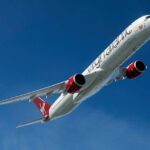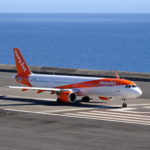Image: Airbus/Qantas
The Qantas Group, Airbus and the Queensland Government are investing in agricultural by-products including sugarcane that will be turned into jet fuel through at a Queensland biofuel production facility being developed by Jet Zero Australia in partnership with leading sustainable aviation fuel technology company LanzaJet.
The Qantas Group and Airbus will jointly invest $2 million of an initial $6 million capital raising, with the Queensland Government contributing $760,000 and other Australian and international institutional funds providing additional funding. The money will be used to conduct a detailed feasibility study and early-stage project development.
The proposed facility will utilise LanzaJet’s alcohol-to-jet technology to produce up to 100 million litres of SAF per year. Construction is expected to start in 2024.
The Qantas Group and Airbus have committed to investing up to US$200 million to accelerate the establishment of a SAF industry in Australia. The facility is the first project funded under the Qantas and Airbus Australian Sustainable Aviation Fuel Partnership.
Sustainable fuels are the most significant tool airlines currently have to reduce their emissions, particularly given they can be used in today’s engines and fuel delivery infrastructure with no modifications.
Qantas Group Chief Sustainability Officer Andrew Parker said the early project funding was an important first step towards building a domestic SAF industry, which will power flights around Australia.
“Qantas will be the largest single customer for Australian-made SAF to meet our emissions reduction targets, which is why we’re investing in the ideas and technology that will build a local SAF industry,” said Parker.
“This is one of several projects that we are looking to fund this year, all of which will help accelerate the decarbonisation of the aviation industry.”
Airbus Executive Vice President, Corporate Affairs and Sustainability Julie Kitcher said that all Airbus aircraft are already capable of flying with a SAF blend of up to 50 per cent.
“Ensuring a sustainable future for our industry is a priority for Airbus, working with partners across the world and from all sectors,” Kitcher said.“There is a growing positive momentum around SAF, and it is now time to move from commitments to concrete actions. The selection of the first investment under our joint partnership with Qantas is an example of such action, with the potential to deliver SAF locally in Australia and to be a model for other locations around the world.”
Game changer
Queensland Deputy Premier Steven Miles said this project would be a game-changer for Queensland, and the state’s economic future.
“With our rich supply of feedstock, Queensland is in the perfect position to capitalise on the global shift to green jet fuels and become the leader of a local SAF industry,” Miles said.
“It’s exciting to think Queensland could be producing the millions of litres of SAF needed to power flights across Australia and around the globe, creating more regional jobs in the process.
“This is another signal to the world that Queensland is ready for take-off as a clean energy powerhouse.”
The Qantas Group is currently purchasing SAF sourced overseas, including 10 million litres for flights out of London in 2023, and from 2025, 20 million litres per year for flights out of California.
Domestically produced SAF will be a key part of Qantas reaching its commitment to use 10 per cent SAF in its overall fuel mix by 2030 and achieve net zero emissions by 2050.

